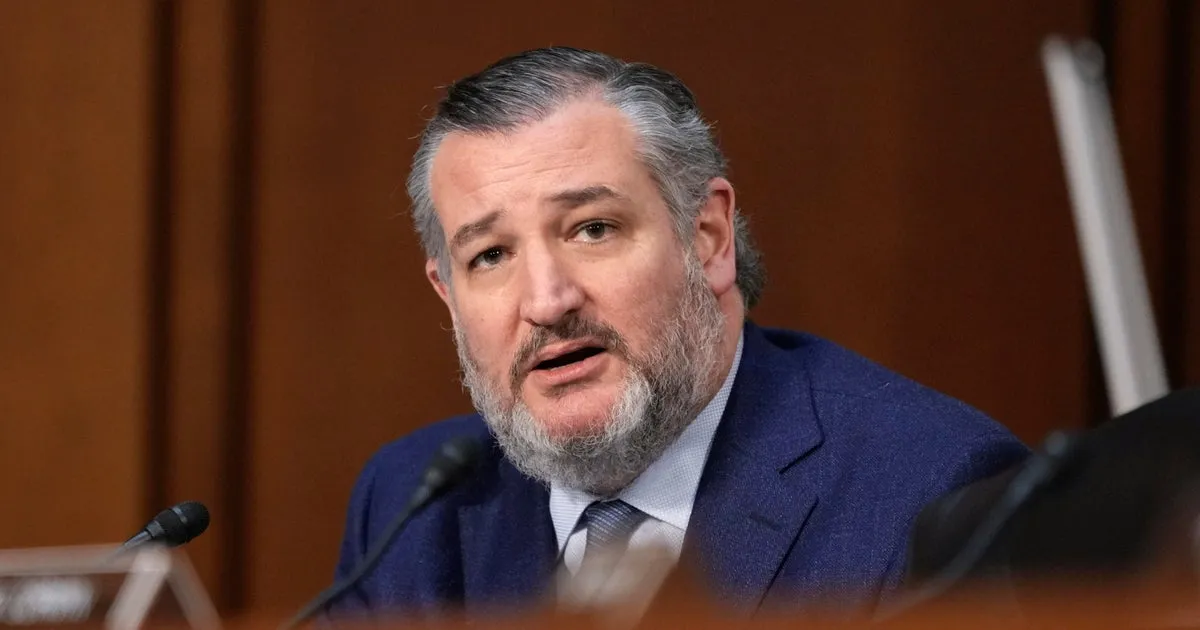
Republican Senator Ted Cruz of Texas has launched a sharp critique against Brendan Carr, the head of the Federal Communications Commission (FCC), for his recent comments urging ABC to take action against late-night host Jimmy Kimmel. Cruz labeled Carr's remarks as "dangerous as hell," drawing a parallel to a mafia shakedown. This controversy erupted after ABC, owned by Disney, decided to take Jimmy Kimmel Live! off the air indefinitely, just two days following Kimmel's remarks regarding the assassination of conservative activist Charlie Kirk.
On Wednesday, ABC's decision came after Kimmel faced backlash for his comments during a recent monologue. Hours before this decision, FCC Chair Carr publicly urged ABC to respond to Kimmel's statements, ominously stating, "We can do this the easy way or the hard way." On his podcast the following Friday, Cruz acknowledged Carr as a "good guy" but criticized his intervention, likening it to a scene from the iconic mob film 'Goodfellas'. Cruz mimicked a mob boss, saying, "nice bar you have here, it'd be a shame if something happened to it," to emphasize his point.
Kimmel had angered conservatives when he remarked, "We hit some new lows over the weekend with the MAGA gang trying to characterize this kid who murdered Charlie Kirk as anything other than one of them." He also mocked President Trump's reaction to the shooting. Cruz, who is known for his outspoken views, expressed little sympathy for Kimmel, labeling him as "profoundly unfunny and bitter and nasty." Cruz even went so far as to describe Kimmel's show being taken off the air as a "fantastic thing," arguing that Kimmel "flat-out lied" about Kirk's assassination.
While Cruz criticized Kimmel, he raised concerns about the implications of Carr's comments. He warned that if the government begins to dictate what can be aired based on its preferences, it could lead to dire consequences for conservatives in the future. "If the government gets in the business of saying, 'we're going to ban you from the airwaves if you don't say what we like,' that will end up bad for conservatives," Cruz cautioned. He further warned that a future Democratic administration could use such powers to silence conservative voices, calling this potential scenario "dangerous."
When asked about Cruz's statements, former President Trump praised Carr as a "courageous person" and expressed his disagreement with Cruz's perspective. Carr, a staunch ally of Trump, had earlier described Kimmel's remarks as "some of the sickest conduct possible" and suggested that it would be appropriate for ABC to suspend Kimmel. He urged independent companies owning ABC's local affiliates to take action against the network, citing FCC rules that require broadcast stations to act in the public interest.
Following Carr's comments, media giants like Nexstar and Sinclair Broadcast Group announced their decision to preempt Kimmel’s show, condemning his remarks about Kirk. A Nexstar spokesperson clarified that the decision to preempt "Jimmy Kimmel Live!" was made independently by their executive team, with no prior communication with the FCC or any government entity. Shortly after, an ABC spokesperson confirmed that Kimmel's show would be off the air indefinitely.
This move sparked outrage, especially from the FCC's lone Democratic appointee, Commissioner Anna Gomez, who accused ABC of cowardly capitulation that jeopardizes the foundation of the First Amendment. She asserted, "This FCC does not have the authority, the ability, or the constitutional right to police content or punish broadcasters for speech the government dislikes."
The actions taken against Kimmel have fueled a broader debate over free speech, particularly in the wake of Kirk's tragic death. Many conservatives and figures from the Trump administration have called for accountability against those who ridicule or trivialize the assassination. Meanwhile, Trump himself celebrated Kimmel’s departure from the airwaves, suggesting that TV networks should face consequences for negative coverage, stating, "They'll take a great story and they'll make it bad."
This ongoing controversy highlights significant issues surrounding free speech and the role of government in regulating media content in the United States, inviting further discussion on the future of political commentary in entertainment.